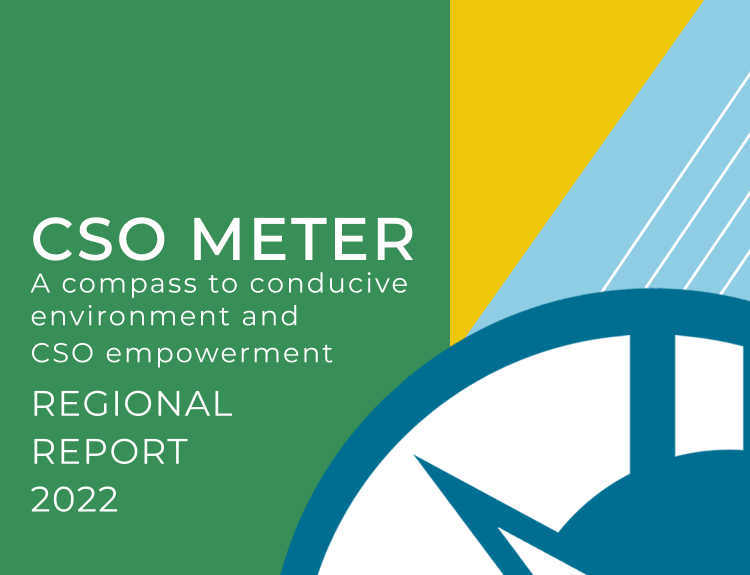
The year 2022 was marked by Russia’s invasion of Ukraine: massive civilian casualties and the destruction of infrastructure have led to millions of people fleeing the country. Governmental responses to the conflict and the necessity to relocate organisations and human rights defenders to safe harbours have all affected civil society working in the region. Many have shown remarkable flexibility as they had to restructure organisational capacities and divert their work towards mobilising aid, providing immediate humanitarian and legal assistance. In the midst of the crisis, the EU has initiated accession processes for Ukraine, Moldova, and Georgia, with an increased focus on enabling civic space.
CSOs in Ukraine, being directly affected by the war, suffered deterioration in all CSO Meter areas. To a major extent this is the main factor that has influenced the deterioration of the overall regional civil society environment score from 4.3 in 2021 to 4.2 in 2022. Despite of this, Ukraine is also the highest scorer in the region in two areas: State Support and State-CSO Cooperation. The overall CSO environment country scores for Azerbaijan and Belarus also deteriorated compared to 2021. In 2022 Moldova was the only country in the region in which the scores have not deteriorated in any of the 11 areas monitored. Moldova and Georgia are leaders in the region, by each having the highest overall score in a total of five areas, while Armenia follows closely, leading in four areas.
Key trends in the region:
1. State-CSO relations are strained
State authorities have taken diverse approaches towards CSOs in the region when it comes to their lack of involvement in decision-making, the low levels of investment in their development through state support, and the failure to protect CSOs against violations from third parties. In Belarus, the authorities have effectively declared a war against independent civil society resulting in repression and the forced liquidation of organisations.
2. CSOs experience increase in funding restrictions and barriers
The financial viability of CSOs has been further challenged by (1) restrictions on CSOs’ access to funds (particularly foreign funds for e.g. in Belarus and Azerbaijan), and (2) barriers to CSOs accessing financial services. Access to resources for CSOs continues to be limited in Azerbaijan and Belarus. As a crucial source for CSOs’ survival, restrictions on access to foreign funding are especially challenging. In Georgia, a political party submitted a draft ‘foreign agent’ law in the Parliament (which was withdrawn in 2023). CSOs in Moldova and Armenia also faced smear campaigns linked to their sources of funding, mainly from illiberal groups or the opposition. The application of anti-money laundering and counter-terrorism financing (AML/CTF) measures in the region by states and financial institutions has spread further and has impacted CSOs’ access to financial services (e.g. CSOs with Belarusian funders in Georgia cannot open bank accounts).
3. Digital surveillance endangers digital rights
Governments have expanded the use of digital surveillance, including artificial intelligence (AI)-driven facial recognition and spyware, without sufficient safeguards for human rights and due process. In many countries across the region, emergency measures adopted following Russia’s invasion of Ukraine included increased powers for law enforcement and national security authorities to access the personal data and electronic devices of citizens.
